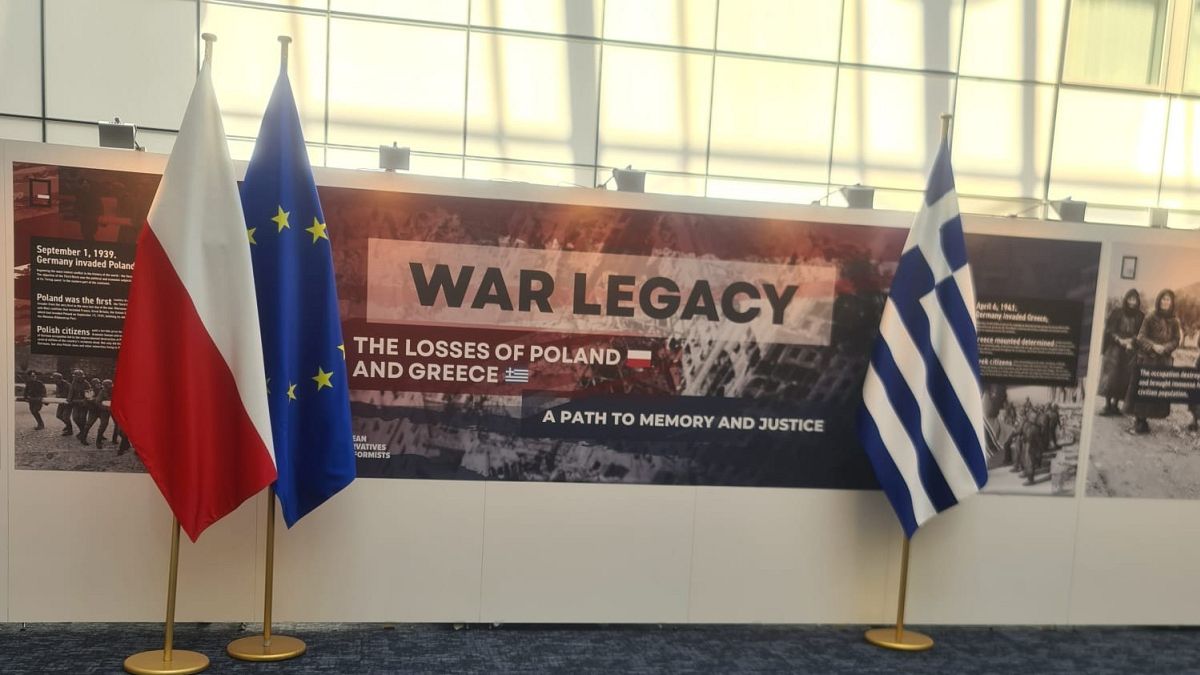

The corridors of European diplomacy and history reverberate with a blend of reflection and urgent dialogue as recent events bring attention to both the past and the potential for future resolutions. Notably, a new exhibition at the European Parliament, phone discussions between key global leaders, and renewed calls to Iran highlight the evolving landscape of international relations. An engaging exhibition, substantial diplomatic talks, and a plea for global peace command attention in these nuanced times.
At the European Parliament, an exhibition has opened that meticulously documents the harrowing experiences of Greece and Poland during World War II. This thoughtfully curated display serves as a stark reminder of the immense suffering and destruction wrought by Nazi Germany on these nations. The exhibition underscores the depth of the historical wounds still felt in Greece and Poland, offering substantial evidence supporting their ongoing calls for reparations. Members of the European Parliament from these countries reiterate the necessity of addressing these claims, considering them essential for closure and justice. This exhibit not only aims to inform those within the Parliament but also seeks to reignite broader discussions about historical accountability and reparation.
On a different note, French President Emmanuel Macron and Russian President Vladimir Putin conducted a phone conversation—marking their first direct dialogue since September 2022. The discussion was described as “substantial,” with particular focus on advocating for a ceasefire in Ukraine, amidst the evolving dynamics since Russia’s initial invasion. Macron’s continuous diplomatic efforts emphasize a peaceful resolution to the ongoing conflict, a goal that he has persistently pursued since visiting Russia in 2022. During this interaction, both leaders concurred on the urgency of resolving Iran’s nuclear program tensions through diplomacy, emphasizing a unified approach to this complex international issue.
Simultaneously, the European Union has re-engaged Tehran, urging the resumption of nuclear negotiations. This renewed outreach follows after previous dialogues were disrupted by military engagements targeting Iran’s nuclear sites. Estonia’s Prime Minister Kaja Kallas, currently serving as President of the European Council, reiterated the EU’s steadfast commitment to addressing nuclear concerns through peaceful negotiation. Despite previous setbacks, this call signifies a hopeful step towards reestablishing dialogue and reducing tensions with Iran, ensuring that diplomatic channels remain open.
Collectively, these events reflect a strong desire within European leadership circles to constantly address pressing historical and contemporary issues with an emphasis on dialogue and resolved understanding. Whether it’s seeking justice for past atrocities, advocating for peace in a present conflict, or preventing nuclear escalation, the spirit of diplomacy and engagement lingers at the forefront. As history continues to shape present actions, such initiatives foster a climate of hope and reconciliation, suggesting that through patient diplomacy, constructive pathways forward remain viable—a much-needed sentiment in today’s complex geopolitical arena.
Source: {link}
